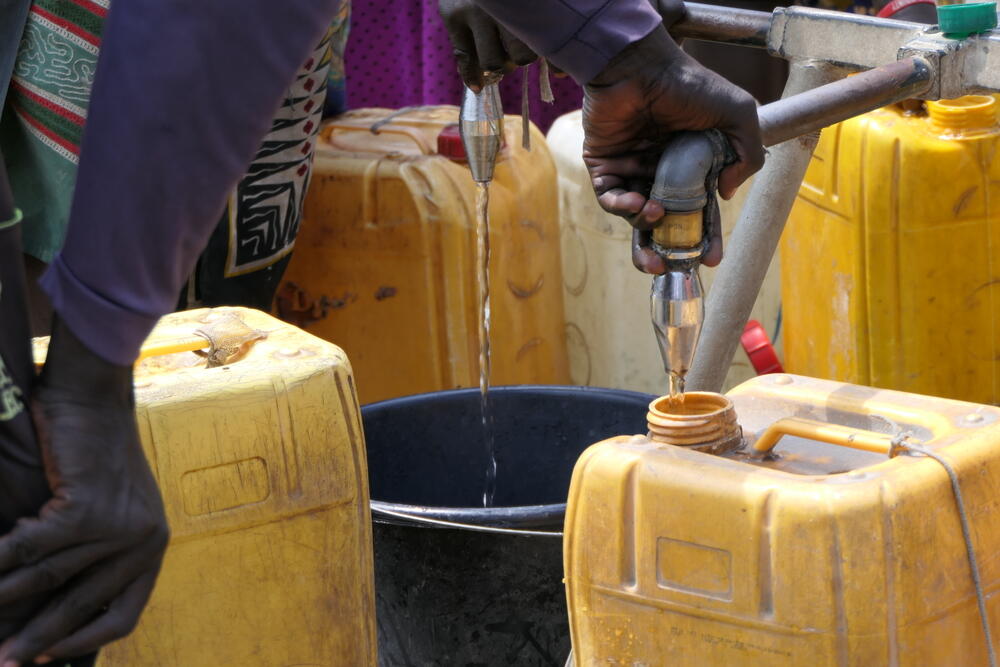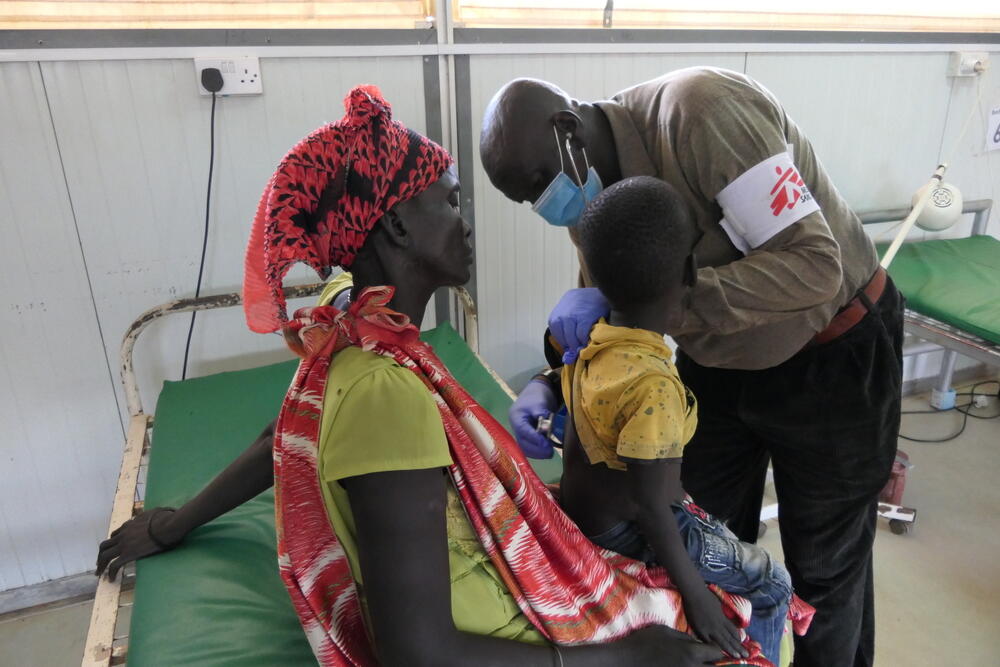South Sudan: "Deplorable" situation in Bentiu camp behind jump in hepatitis E cases
In South Sudan, an alarming jump in the number of patients with hepatitis E and acute watery diarrhoea has been seen in Bentiu camp – home to around 100,000 internally displaced people.
The situation is critical with two deaths already registered within a month, since the end of July.
“We have repeatedly warned of the health risks of inadequate water and sanitation service provision in the Bentiu camp,” says Federica Franco, Head of MSF in South Sudan.
“A failure to address these issues, with agencies actually reducing their water and sanitation services over the past year, has now resulted in this avoidable situation.”
Risk to pregnant women
Of 186 hepatitis E cases reported in 2021, over 60 percent were recorded over six weeks between July to mid-August.
One patient who passed away was a pregnant woman, according to the Ministry of Health in South Sudan. Pregnant women are especially at risk, as they are more likely to experience severe illness and the mortality rate can be as high as 10-30 percent.
“The deplorable water and sanitation situation in the Bentiu camp is not a new phenomenon but has continued to drastically deteriorate in the last two years, leaving an already vulnerable population at high risk of outbreaks”
MSF teams have also witnessed an exponential growth in the number of people with acute watery diarrhoea. While we were treating an average of 230 patients per month throughout the year, we have seen 1,454 in July – a 50 percent rise in the number of patients seen in June. The most affected are children aged under five years old.
“We don’t have water containers in our house and sometimes my children go to bed without showering because the one jerry can we have is not enough for showering the five of us. We just use it for drinking,” says camp resident Nyaker Deng Bol, 24 years old.
Listen to “Voices from Bentiu”, an episode of the MSF podcast Everyday Emergency
Water and sanitation
A lack of soap and latrines, as well as open sewers, are among the poor hygiene issues contributing to the appalling situation for over 100,000 people who live in the camp.
During a survey MSF teams conducted in August, less than 27 percent of the sampled households could show a piece of soap while being interviewed in their shelters. Additionally, only around 13 percent of people have access to hand washing points with water and soap close to the latrines.
An earlier MSF assessment in April showed that the number of functional latrines in the camp was ten times below the minimum international standard for the size of population.
“The deplorable water and sanitation situation in the Bentiu camp is not a new phenomenon but has continued to drastically deteriorate in the last two years, leaving an already vulnerable population at high risk of outbreaks, as we are currently witnessing,” says Samreen Hussain, MSF deputy medical coordinator.
The impact of UK aid cuts
After decades of protracted conflicts and complex humanitarian emergencies, South Sudan’s health system lies in ruins, leaving people dependant on the support of international agencies and external governments to address their healthcare needs.
This deteriorating water and sanitation situation in Bentiu comes as South Sudan now faces aid cuts.
Prior to the UK Government's cuts to overseas aid, the UK was the second largest donor to the humanitarian response in South Sudan. However, the future impact of a reduction in aid funding will be revealed if the UK does not restore the abruptly reduced support to South Sudan’s health system.
The UK must mitigate such impacts and continue to support the South Sudanese health system to ensure that lives are not needlessly lost.
While MSF has mobilised a medical response, organisations that provide water and sanitation in Bentiu camp have also been increasing services to address the unacceptable conditions.
Desludging, cleaning and rehabilitation of existing latrines, construction of new latrines, and distribution of soap and water containers should urgently continue, as the water and sanitation conditions are still extremely poor.

Help us prepare for the next emergency
MSF in South Sudan
In July 2011, South Sudan became the world’s newest country after gaining independence from Sudan. The peace deal that led to the split also ended Africa’s longest running civil war. But in December 2013, South Sudan was plunged back into chaos as civil war erupted amid a power struggle between the president and his deputy.
The conflict has forced millions of people from their homes and left many without access to basic necessities, such as food, water and healthcare. Médecins Sans Frontières/Doctors Without Borders (MSF) works in hospitals and clinics throughout South Sudan, where we run some of our biggest programmes worldwide.

